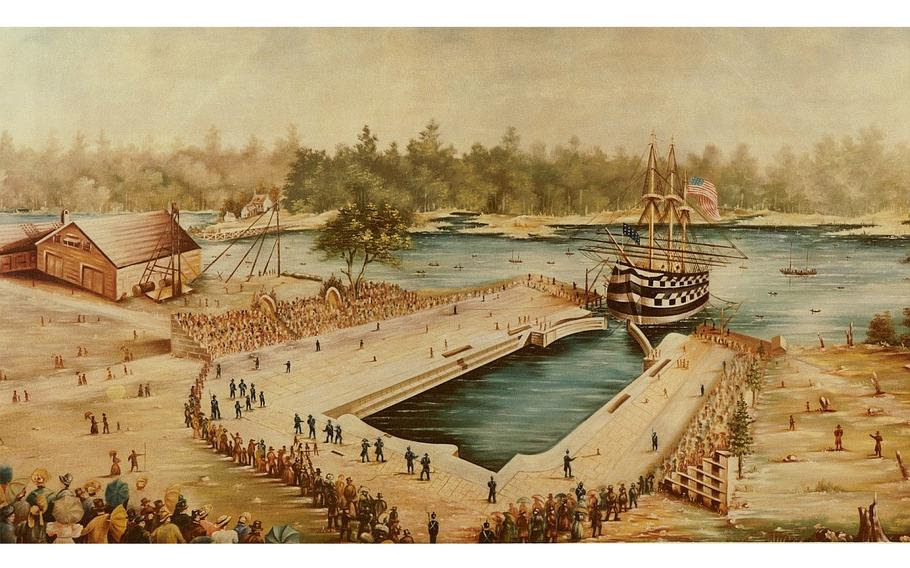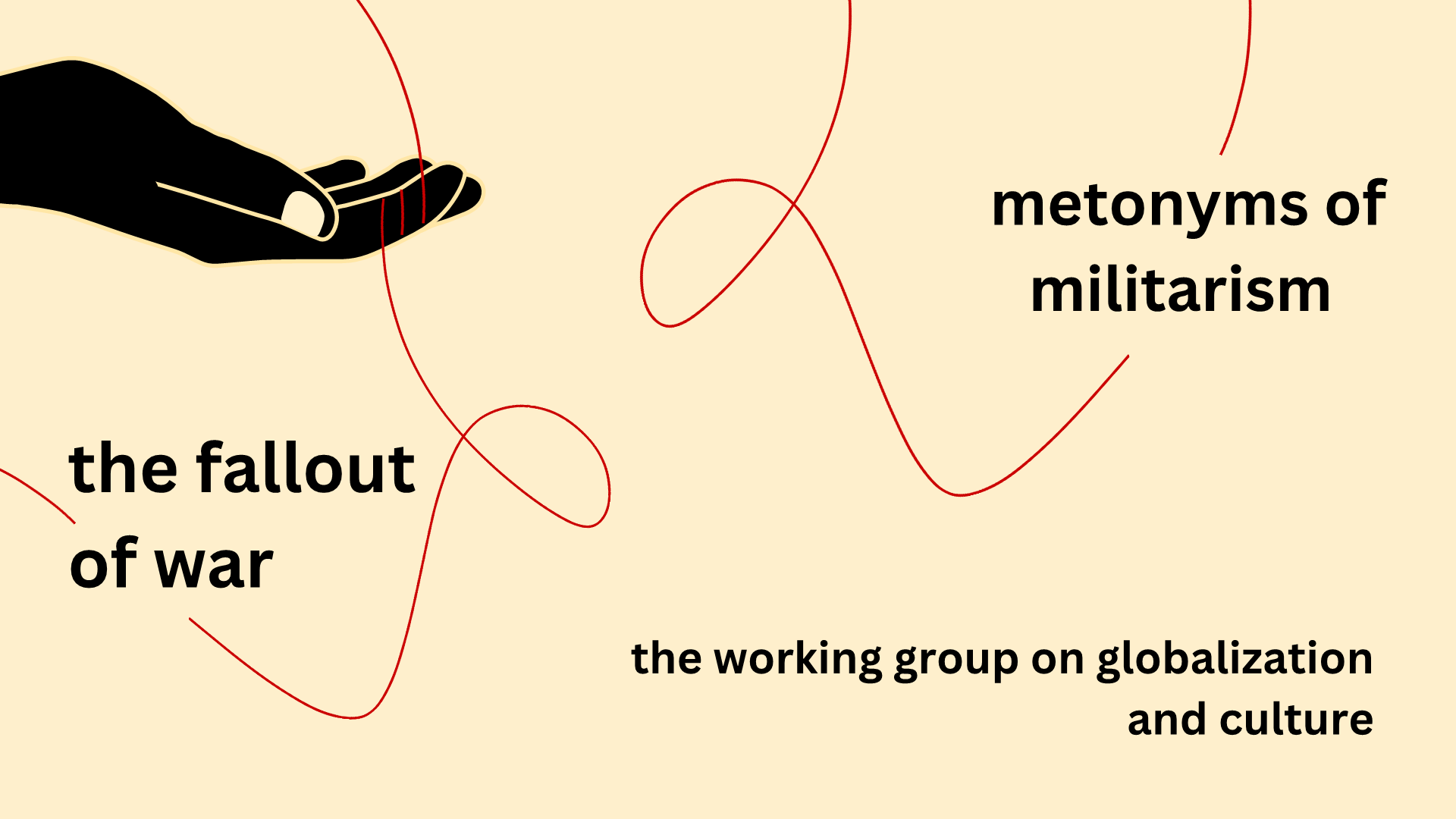African American History
Towards a Revolution in Labor History
Online: Zoom link will be provided to registered participantsA reading of Theodore W. Allen's unpublished manuscript, "Towards a Revolution in Labor History," convened with Sean Ahern. According to Allen, "the original sin of 'white' labor historiography lies in the misbegotten concept that excludes the Black bond-laborers from the 'working class.'”
Towards a Revolution in Labor History
Online: Zoom link will be provided to registered participantsA reading of Theodore W. Allen's unpublished manuscript, "Towards a Revolution in Labor History," convened with Sean Ahern. According to Allen, "the original sin of 'white' labor historiography lies in the misbegotten concept that excludes the Black bond-laborers from the 'working class.'”
Towards a Revolution in Labor History
Online: Zoom link will be provided to registered participantsA reading of Theodore W. Allen's unpublished manuscript, "Towards a Revolution in Labor History," convened with Sean Ahern. According to Allen, "the original sin of 'white' labor historiography lies in the misbegotten concept that excludes the Black bond-laborers from the 'working class.'”
Towards a Revolution in Labor History
Online: Zoom link will be provided to registered participantsA reading of Theodore W. Allen's unpublished manuscript, "Towards a Revolution in Labor History," convened with Sean Ahern. According to Allen, "the original sin of 'white' labor historiography lies in the misbegotten concept that excludes the Black bond-laborers from the 'working class.'”
Towards a Revolution in Labor History
Online: Zoom link will be provided to registered participantsA reading of Theodore W. Allen's unpublished manuscript, "Towards a Revolution in Labor History," convened with Sean Ahern. According to Allen, "the original sin of 'white' labor historiography lies in the misbegotten concept that excludes the Black bond-laborers from the 'working class.'”
Towards a Revolution in Labor History
Online: Zoom link will be provided to registered participantsA reading of Theodore W. Allen's unpublished manuscript, "Towards a Revolution in Labor History," convened with Sean Ahern. According to Allen, "the original sin of 'white' labor historiography lies in the misbegotten concept that excludes the Black bond-laborers from the 'working class.'”
Towards a Revolution in Labor History
Online: Zoom link will be provided to registered participantsA reading of Theodore W. Allen's unpublished manuscript, "Towards a Revolution in Labor History," convened with Sean Ahern. According to Allen, "the original sin of 'white' labor historiography lies in the misbegotten concept that excludes the Black bond-laborers from the 'working class.'”
Towards a Revolution in Labor History
Online: Zoom link will be provided to registered participantsA reading of Theodore W. Allen's unpublished manuscript, "Towards a Revolution in Labor History," convened with Sean Ahern. According to Allen, "the original sin of 'white' labor historiography lies in the misbegotten concept that excludes the Black bond-laborers from the 'working class.'”
Reading Du Bois’s Black Reconstruction
Online: Zoom link will be provided to registered participantsA close reading over 10 weeks of W.E.B. Du Bois's classic work, Black Reconstruction, with Sean Ahern. The book provides a basis for a much overdue revolution in US labor history. As Du Bois so eloquently and bluntly put in in 1935: “The South, after the war, presented the greatest opportunity for a real national labor movement which the nation ever saw or is likely to see again for many decades. Yet, the labor movement, with but few exceptions, never realized the situation. It never had the intelligence or knowledge, as a whole, to see in black slavery and Reconstruction, the kernel and meaning of the labor movement in the United States.”
Reading Du Bois’s Black Reconstruction
Online: Zoom link will be provided to registered participantsA close reading over 10 weeks of W.E.B. Du Bois's classic work, Black Reconstruction, with Sean Ahern. The book provides a basis for a much overdue revolution in US labor history. As Du Bois so eloquently and bluntly put in in 1935: “The South, after the war, presented the greatest opportunity for a real national labor movement which the nation ever saw or is likely to see again for many decades. Yet, the labor movement, with but few exceptions, never realized the situation. It never had the intelligence or knowledge, as a whole, to see in black slavery and Reconstruction, the kernel and meaning of the labor movement in the United States.”
Reading Du Bois’s Black Reconstruction
Online: Zoom link will be provided to registered participantsA close reading over 10 weeks of W.E.B. Du Bois's classic work, Black Reconstruction, with Sean Ahern. The book provides a basis for a much overdue revolution in US labor history. As Du Bois so eloquently and bluntly put in in 1935: “The South, after the war, presented the greatest opportunity for a real national labor movement which the nation ever saw or is likely to see again for many decades. Yet, the labor movement, with but few exceptions, never realized the situation. It never had the intelligence or knowledge, as a whole, to see in black slavery and Reconstruction, the kernel and meaning of the labor movement in the United States.”
The Fallout of War: Metonyms of Militarism
Recording available on YouTubeVideo available at https://youtu.be/h0dYxI2zDoY
In the second of two linked sessions, the Yale Working Group on Globalization and Culture presents their collective research on a keyword of contemporary cultural studies - war - and investigates its many valences as lived reality and as metaphor. Taking account of war as constitutive of the present, the working group explores war's myriad meanings.
Reading Du Bois’s Black Reconstruction
Online: Zoom link will be provided to registered participantsA close reading over 10 weeks of W.E.B. Du Bois's classic work, Black Reconstruction, with Sean Ahern. The book provides a basis for a much overdue revolution in US labor history. As Du Bois so eloquently and bluntly put in in 1935: “The South, after the war, presented the greatest opportunity for a real national labor movement which the nation ever saw or is likely to see again for many decades. Yet, the labor movement, with but few exceptions, never realized the situation. It never had the intelligence or knowledge, as a whole, to see in black slavery and Reconstruction, the kernel and meaning of the labor movement in the United States.”
Reading Du Bois’s Black Reconstruction
Online: Zoom link will be provided to registered participantsA close reading over 10 weeks of W.E.B. Du Bois's classic work, Black Reconstruction, with Sean Ahern. The book provides a basis for a much overdue revolution in US labor history. As Du Bois so eloquently and bluntly put in in 1935: “The South, after the war, presented the greatest opportunity for a real national labor movement which the nation ever saw or is likely to see again for many decades. Yet, the labor movement, with but few exceptions, never realized the situation. It never had the intelligence or knowledge, as a whole, to see in black slavery and Reconstruction, the kernel and meaning of the labor movement in the United States.”
Reading Du Bois’s Black Reconstruction
Online: Zoom link will be provided to registered participantsA close reading over 10 weeks of W.E.B. Du Bois's classic work, Black Reconstruction, with Sean Ahern. The book provides a basis for a much overdue revolution in US labor history. As Du Bois so eloquently and bluntly put in in 1935: “The South, after the war, presented the greatest opportunity for a real national labor movement which the nation ever saw or is likely to see again for many decades. Yet, the labor movement, with but few exceptions, never realized the situation. It never had the intelligence or knowledge, as a whole, to see in black slavery and Reconstruction, the kernel and meaning of the labor movement in the United States.”


